Hyundai completes Boston Dynamics acquisition
US robotics company will complement Hyundai's AI expertise

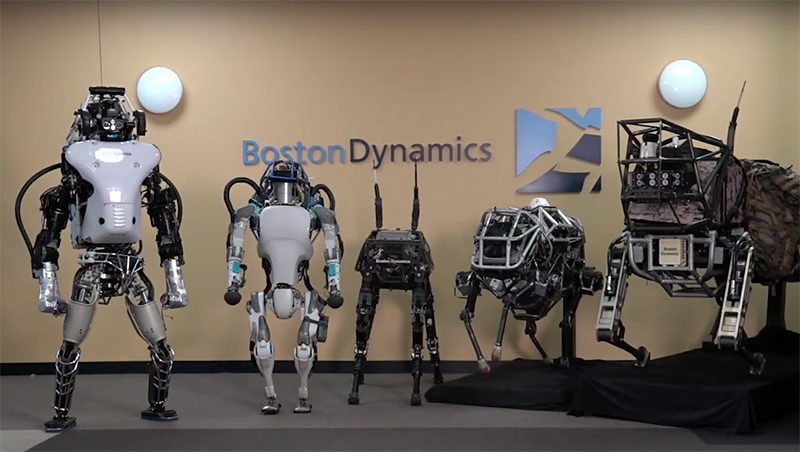
Sign up today and you will receive a free copy of our Future Focus 2025 report - the leading guidance on AI, cybersecurity and other IT challenges as per 700+ senior executives
You are now subscribed
Your newsletter sign-up was successful
Hyundai has completed its $1.1 billion acquisition of Boston Dynamics from SoftBank.
The purchase, first announced in December 2020, will see Hyundai take an 80% controlling interest in the robotics manufacturer, while SoftBank will retain 20% of the equity through an affiliate company.
Google acquired Boston Dynamics, which was founded in 1992 as an MIT spinoff, in 2013, before its parent company Alphabet sold it to SoftBank in 2017.
Boston Dynamics launched its first commercial robot, Spot, in June 2020, and this dog-like robot has since been used by bomb squads and law enforcement units. Users can attach a robotic arm to Spot and use it to light and inspect items, to manipulate valves, flip levers, and open doors.
The company's robots are predominantly designed for use in construction and inspection, but it's also building capabilities in warehousing automation with its robot called Stretch. This new robot will launch as a pilot in March and enter commercial production in 2022.
Stretch will help move boxes in warehouses, beginning with truck unloading, and it will eventually evolve to handle order building, according to Boston Dynamics. Stretch will also offer Pick, a system that uses machine learning to unload up to 700 boxes per hour from pallets and onto conveyor belts.
RELATED RESOURCE
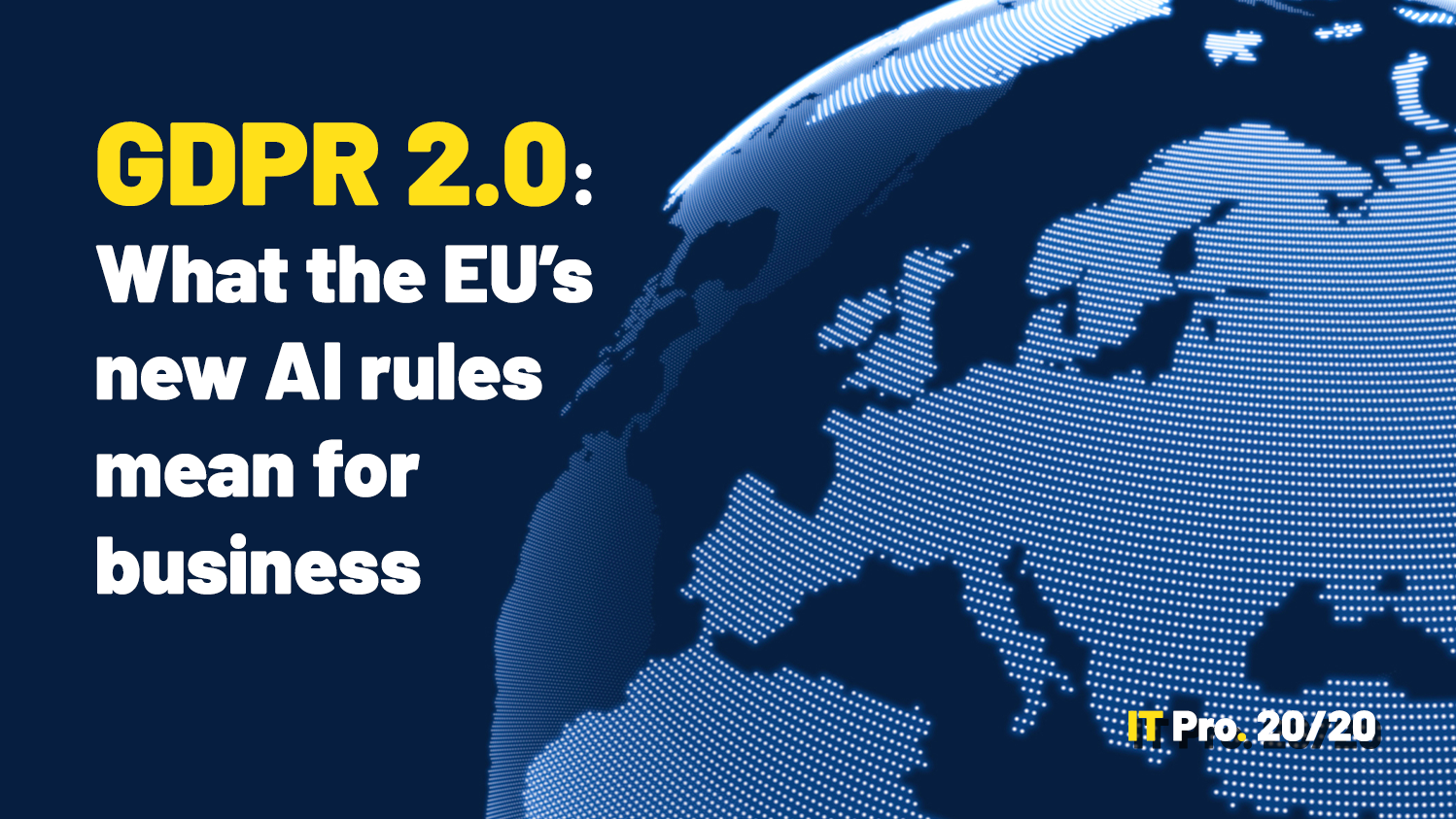
IT Pro 20/20: What the EU's new AI rules mean for business
The 17th issue of IT Pro 20/20 considers the effect of new regulations on the IT industry
Hyundai already has significant in-house robotics expertise. It debuted the MEX robot, which helps people with paraplegia walk, at the 2017 Consumer Electronics Show (CES). The following year, Hyundai launched VEX and CEX, which were wearable exoskeletons to help protect and strengthen workers. In 2019, Hyundai revealed a service robot that helps complete hotel-focused tasks.
Sign up today and you will receive a free copy of our Future Focus 2025 report - the leading guidance on AI, cybersecurity and other IT challenges as per 700+ senior executives
When the companies initially announced the acquisition, Hyundai said Boston Dynamics' expertise in 3D vision and manipulation using biped and quadruped robots aligned well with its expertise in artificial intelligence (AI) and human-robot interaction.
Hyundai plans to expand its presence into the market for humanoid robots, developing robots for various tasks, including caregiving in hospitals.
Danny Bradbury has been a print journalist specialising in technology since 1989 and a freelance writer since 1994. He has written for national publications on both sides of the Atlantic and has won awards for his investigative cybersecurity journalism work and his arts and culture writing.
Danny writes about many different technology issues for audiences ranging from consumers through to software developers and CIOs. He also ghostwrites articles for many C-suite business executives in the technology sector and has worked as a presenter for multiple webinars and podcasts.
-
 How the rise of the AI ‘agent boss’ is reshaping accountability in IT
How the rise of the AI ‘agent boss’ is reshaping accountability in ITIn-depth As IT companies deploy more autonomous AI tools and agents, the task of managing them is becoming more concentrated and throwing role responsibilities into doubt
-
 Hackers are pouncing on enterprise weak spots as AI expands attack surfaces
Hackers are pouncing on enterprise weak spots as AI expands attack surfacesNews Potent new malware strains, faster attack times, and the rise of shadow AI are causing havoc
-
 Can robots work safely alongside humans? This one industry leader thinks we're not far away
Can robots work safely alongside humans? This one industry leader thinks we're not far awayNews Humanoid robots and people will be able to work truly side-by-side this year, according to the CEO of one leading robotics company.
-
 Why cutting-edge innovation is killing the planet
Why cutting-edge innovation is killing the planetIn-depth AI and robots will do our work, we’ll get paid in cryptocurrency, and cars will drive themselves – but each of these technologies is a massive energy hog
-
 Why you need process mining in your RPA strategy
Why you need process mining in your RPA strategyWhitepaper Reducing workloads so more time is spent on strategic thinking
-
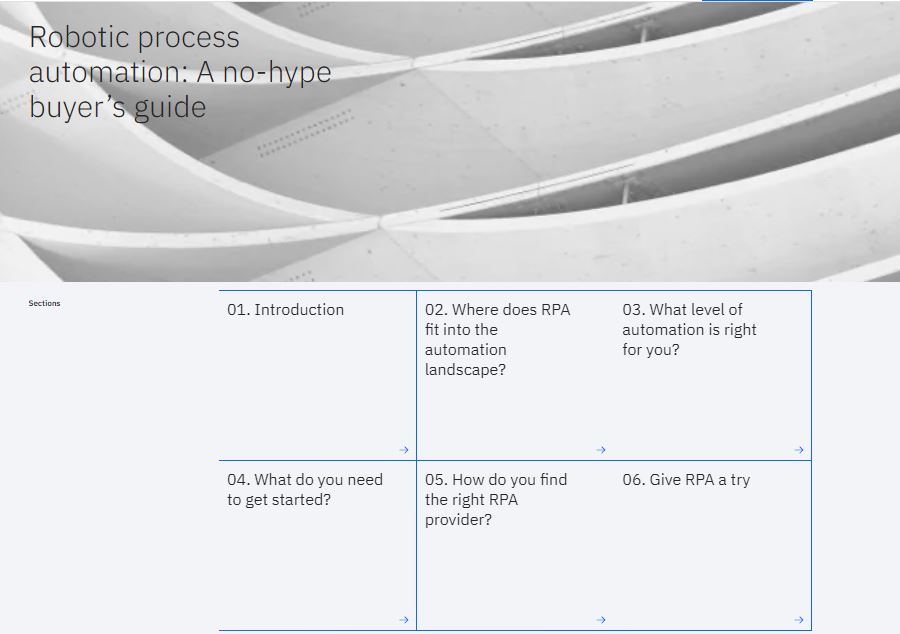 Robotic process automation
Robotic process automationWhitepaper A no-hype buyer's guide
-
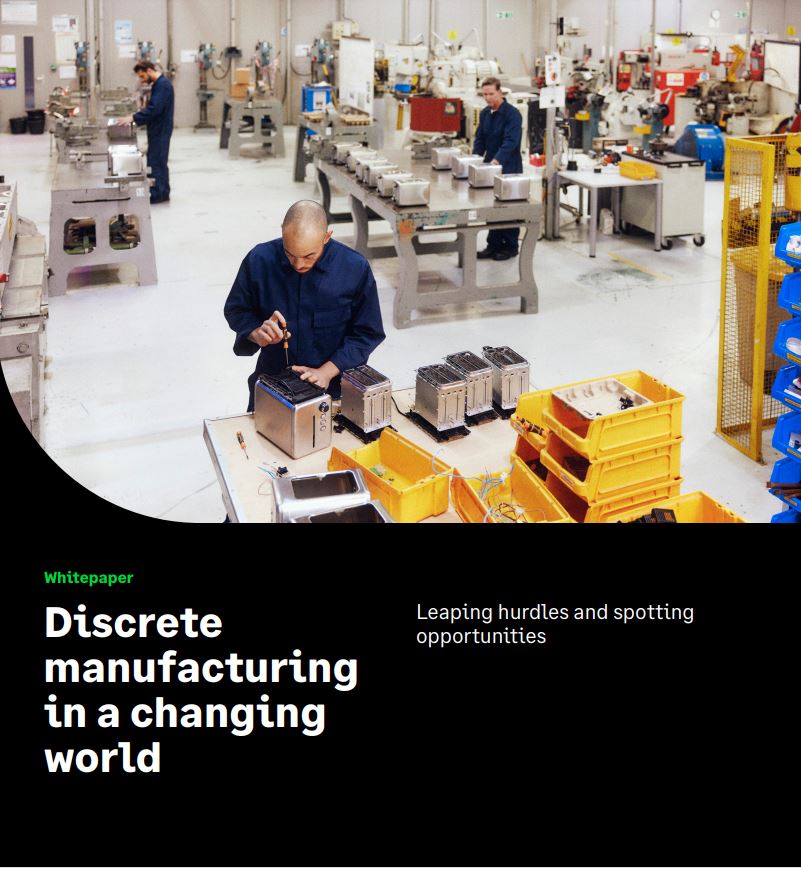 Discrete manufacturing in a changing world
Discrete manufacturing in a changing worldWhitepaper Leaping hurdles and spotting opportunities
-
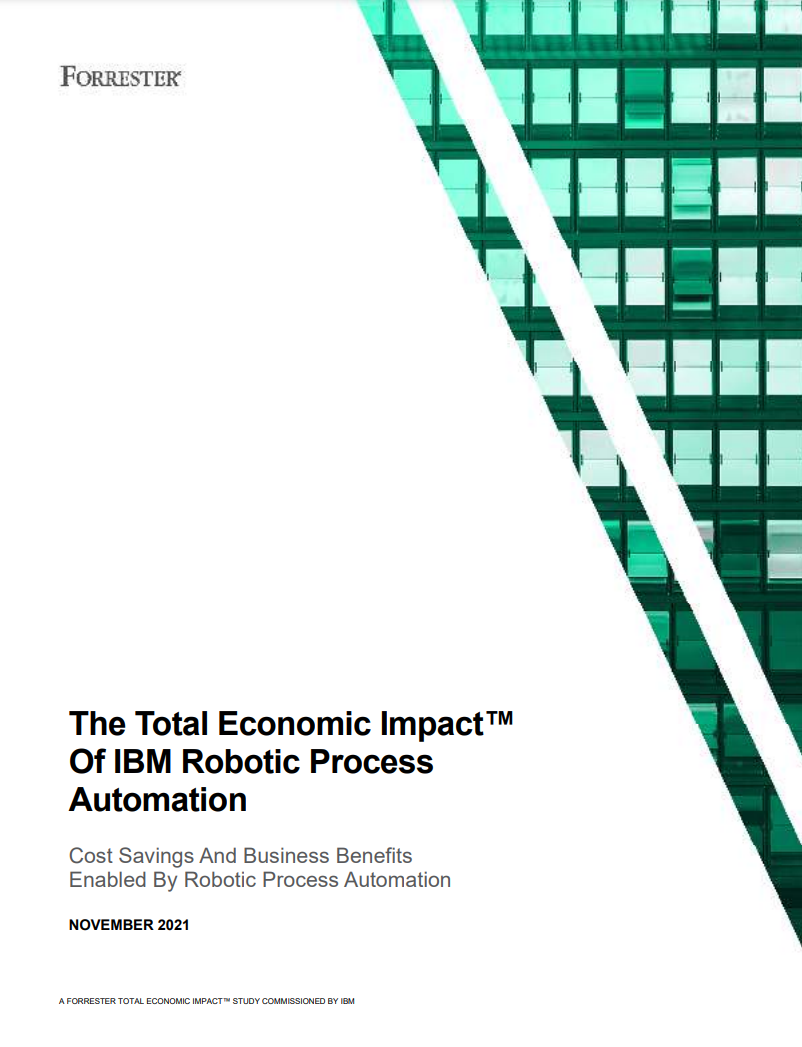 The Total Economic Impact™ of IBM robotic process automation
The Total Economic Impact™ of IBM robotic process automationWhitepaper Cost savings and business benefits enabled by robotic process automation
-
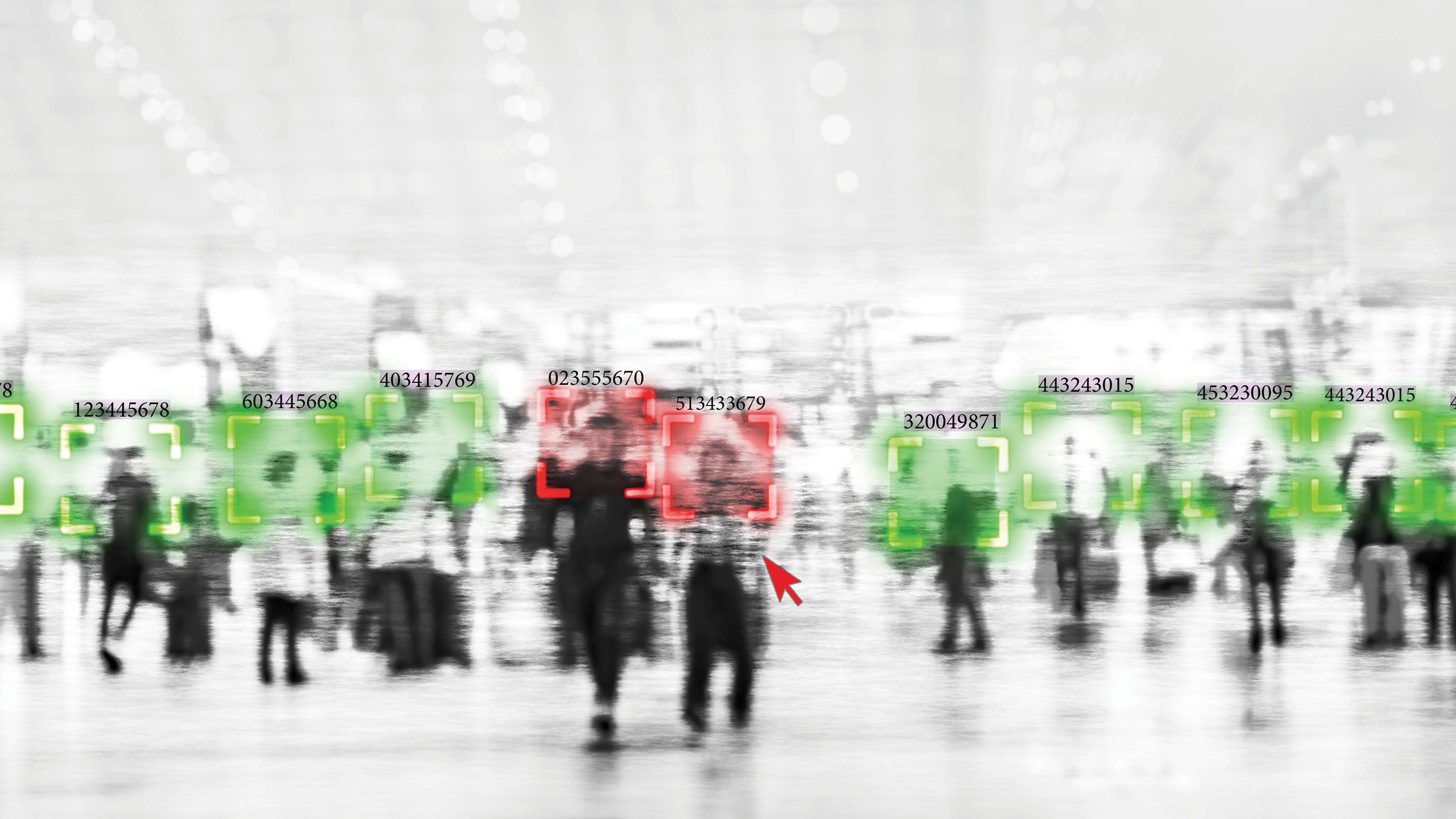 Robot dogs won't save policing – but AI just might
Robot dogs won't save policing – but AI just mightIn-depth Some police forces are turning to robots, AI and facial recognition, but high-profile failures harm public trust
-
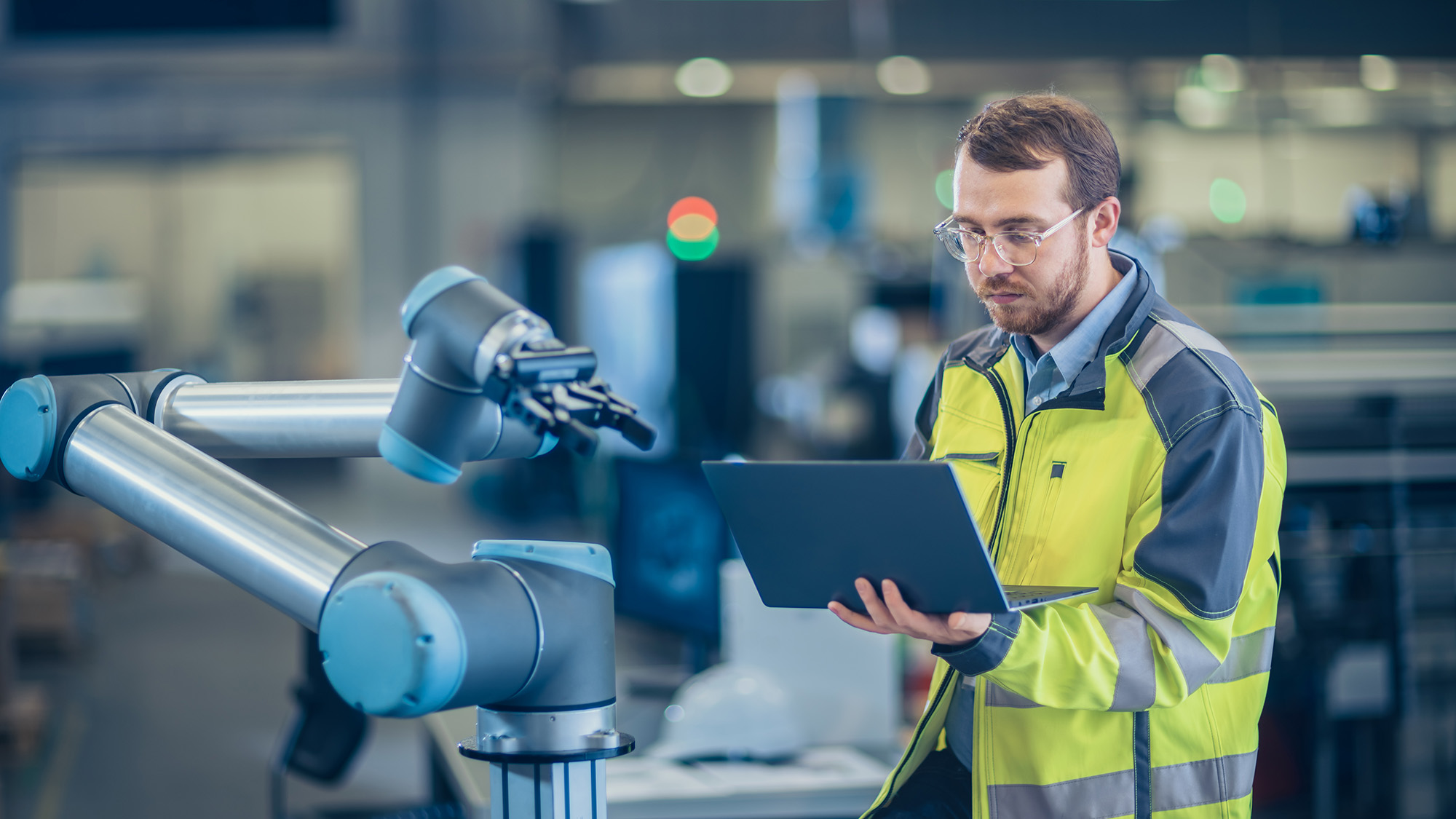 Alphabet tackles industrial robot software market
Alphabet tackles industrial robot software marketNews Intrinsic will teach industrial robots to perform complex tasks
